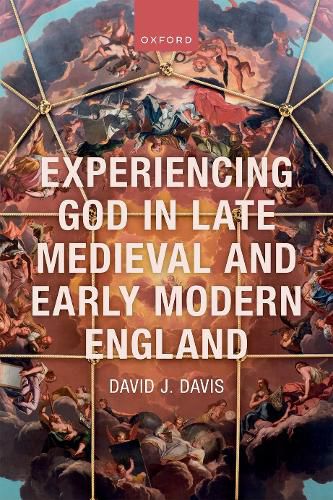Readings Newsletter
Become a Readings Member to make your shopping experience even easier.
Sign in or sign up for free!
You’re not far away from qualifying for FREE standard shipping within Australia
You’ve qualified for FREE standard shipping within Australia
The cart is loading…






Experiencing God in Late Medieval and Early Modern England demonstrates that experiences of divine revelation, both biblical and contemporary, were central to late medieval and early modern English religion. The book sheds light on previously under-explored notions about divine revelation and the role these notions played in shaping large portions of English thought and belief. Bringing together a wide variety of source materials, from contemplative works and accounts of revelatory experiences to biblical commentaries, devotionals, and religious imagery, David J. Davis argues that in the period there was a collective representation of divine revelation as a source of human knowledge, which transcended other religious and intellectual divisions. Not only did most people think that divine revelation, through a ravishing encounter with God, was possible, but also divine revelation was understood to be the pinnacle of religious experience and a source of pure understanding. The book highlights a common discourse running through the sources that underpinned this collective representation of how human beings experienced the divine, and it demonstrates a continual effort across large swathes of English religion to prepare an individual’s soul for an encounter with the divine, through different spiritual disciplines and devotional practices. Over a period of several centuries this discourse and the larger culture of revelation provided an essential structure and legitimacy both to contemporary claims of divine revelation and the biblical precedents that contemporary experiences were modelled after. This discourse detailed the physical, metaphysical, and epistemological features of how a human being was understood to experience divine revelation, providing a means to delimit and define what happened when an individual was rapture by God. Finally, the book situates the experience of revelation within the wider context of knowledge and identifies the ways that claims to divine revelation were legitimated as well as stigmatized based on this common understanding of the experience of rapture.
$9.00 standard shipping within Australia
FREE standard shipping within Australia for orders over $100.00
Express & International shipping calculated at checkout
Stock availability can be subject to change without notice. We recommend calling the shop or contacting our online team to check availability of low stock items. Please see our Shopping Online page for more details.
Experiencing God in Late Medieval and Early Modern England demonstrates that experiences of divine revelation, both biblical and contemporary, were central to late medieval and early modern English religion. The book sheds light on previously under-explored notions about divine revelation and the role these notions played in shaping large portions of English thought and belief. Bringing together a wide variety of source materials, from contemplative works and accounts of revelatory experiences to biblical commentaries, devotionals, and religious imagery, David J. Davis argues that in the period there was a collective representation of divine revelation as a source of human knowledge, which transcended other religious and intellectual divisions. Not only did most people think that divine revelation, through a ravishing encounter with God, was possible, but also divine revelation was understood to be the pinnacle of religious experience and a source of pure understanding. The book highlights a common discourse running through the sources that underpinned this collective representation of how human beings experienced the divine, and it demonstrates a continual effort across large swathes of English religion to prepare an individual’s soul for an encounter with the divine, through different spiritual disciplines and devotional practices. Over a period of several centuries this discourse and the larger culture of revelation provided an essential structure and legitimacy both to contemporary claims of divine revelation and the biblical precedents that contemporary experiences were modelled after. This discourse detailed the physical, metaphysical, and epistemological features of how a human being was understood to experience divine revelation, providing a means to delimit and define what happened when an individual was rapture by God. Finally, the book situates the experience of revelation within the wider context of knowledge and identifies the ways that claims to divine revelation were legitimated as well as stigmatized based on this common understanding of the experience of rapture.